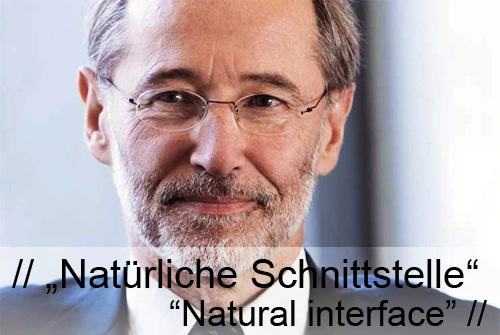Interview with Prof Dr Stefan Jähnichen, Head of Fraunhofer FIRST and President of the German association of computer scientists
Adlershof Special: As the strategic technologies for 2011, the US market research company Gartner names 1) cloud computing, 2) mobile applications and media tablets, and 3) social networks. What would be your top three?
Jähnichen: What we are discussing is the future of computer science, so cloud computing and social networks are, to me at least, rather “old” subjects. My top three are embedded systems, multi- and many core architectures, and sensor networks.
How does cloud differ from grid computing – which was already popular at the end of the millennium?
There’s no great difference. Now as then, the principle is to utilise locally unavailable resources via a network. Only it’s not about computing power any more, but special applications. What is important in setting up cloud systems is the security.
Are tablets and “ubiquitous” devices really superseding the PC? Sometimes they are even impractical, for instance on a desktop?
That’s true, but as a user you still have the choice. I do find it practical when I can read email on my smartphone or iPad and maybe write brief answers to them when I’m travelling. At my desk in the institute I do of course prefer to use a PC or laptop.
But aren’t concepts still lacking to utilise this great new hardware to better effect? Isn’t the software lagging behind this theoretical potential?
In my opinion, you should always think as a user. Information technology should support humans. When there is no need or problem to be solved, even the best hardware and software is of little use. In this respect there is very little I can do with “theoretical potential”.
For instance, the user interface: On the hardware keypad of my old smartphone I could type faster than on the virtual keypad of my new one. Even less tactile qualities are presented by controls integrated in clothing. Speech recognition is a nuisance at the latest when others can hear. In actual fact, we want to control computers with our thoughts, don’t we?
No. I would really prefer an input option that I can consciously control. Only, this should be as intuitive as possible, for instance via functional speech input or gesture based navigation. There is undoubtedly great potential for improvement here. To me, thought control is the last resort, for instance for the severely disabled. In everyday use, say when driving my car, I wouldn’t really want it. It also throws up legal issues. As a consequence, research has ceased on concepts like this.
Users would need simple solutions to program additional functions and automate repeat processes. Even the simplest script languages are not accepted to date, above all because they are not universal.
Yes, you’re certainly right there, and it’s a major research subject as well. At FIRST we’re working on “model based software development”, a model that generates software automatically. Its generation takes place on a higher level of abstraction than programming and is easier to understand. And of course I can change the model more easily than I can validated program code, and so add new functions.
To date, social networks look more like playgrounds. What makes it a “strategic technology”?
I find they’re always useful when people want to network on a subject or specific aim. We use them for invitations and information for young persons that we cannot reach via the usual channels. The more urgent question for me is how we can enhance awareness, especially among this target group, against publishing too much personal information on the network.
Up till now, the USA is seen to be the home of cool computer technology. Germany is a power in mechanical engineering. Can their intersection open up new opportunities in this country?
At all events! In particular, embedded computing is the natural link here. Embedded systems control a large number of applications, for instance in automation and aerospace as well as in railway, automotive and medical engineering. On these sectors German technology is ahead of all others. However, most of its innovative potential lies in information technology. Embedded systems provide considerable added value in the classical engineering disciplines.
What do we have to change if we are to gain the optimal benefits from this opportunity?
A closer tie between computer science and application fields. Better training for computer scientists, both in the theoretical principles and new methods, and applications know-how.
What feasible gadget would you personally like to have?
The intelligent spectacles. They would then whisper the right name in my ear when I’m again standing in front of a former acquaintance and can’t remember who it is.
by Udo Flohr
Link: www.first.fraunhofer.de
